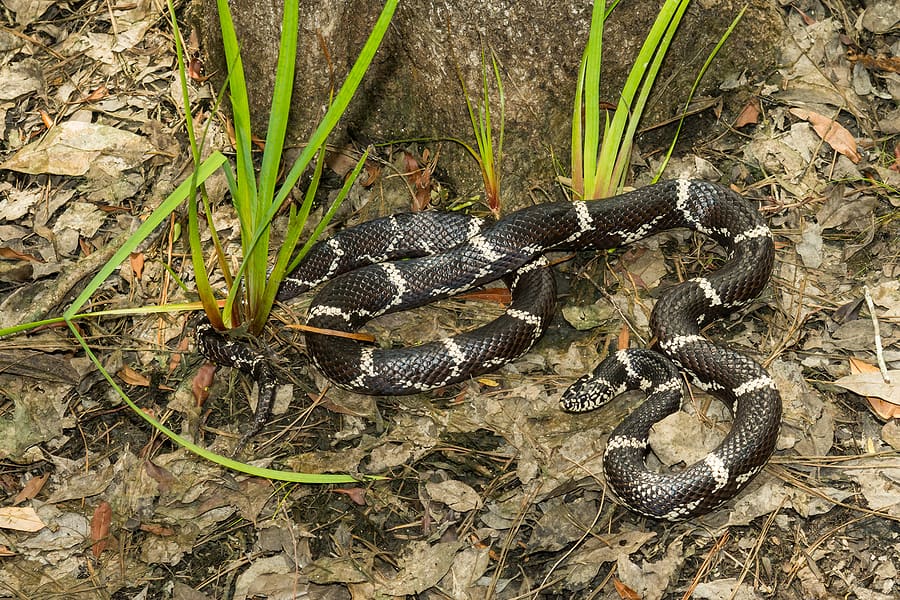When it comes to living in the beautiful state of Georgia, there’s no denying that the warm climate and lush landscapes come with their fair share of wildlife encounters. One of the most common and, for many, dreaded encounters is with snakes. While Georgia is home to a variety of snake species, understanding snake control, prevention, and removal techniques is essential for safeguarding your property and your loved ones. In this blog post, we’ll explore common snakes in Georgia, when snake season typically occurs, and effective ways to keep these slithering neighbors at bay.
Common Snakes in Georgia
Before delving into snake control methods, let’s familiarize ourselves with some of the common snake species found in Georgia:
- Eastern Diamondback Rattlesnake: This venomous snake is one of the largest rattlesnake species in the world. They are mostly found in the southern part of the state.
- Copperhead: Copperheads are venomous and often have a copper-colored head. They are prevalent throughout Georgia.
- Eastern Coral Snake: Although rare, these venomous snakes can be found in certain parts of the state, particularly in the southern regions.
- Black Rat Snake: Non-venomous and beneficial for controlling rodent populations. They are widespread throughout Georgia.
- Eastern Garter Snake: Another non-venomous species often found in gardens and grassy areas.
- Eastern King Snake: These are known for their striking appearance and are valuable for keeping other snake populations in check.
When is Snake Season in Georgia?
Snake season in Georgia typically begins in the spring and lasts through the fall. During this time, snakes become more active as they search for food and suitable breeding grounds. It’s essential to be especially vigilant during these months to reduce the likelihood of unwanted snake encounters.
Ways to Keep Snakes Away from Your Home
Now that we’ve discussed common snakes and their active seasons, let’s explore effective snake control and prevention techniques to protect your home and family:
1. Maintain a Tidy Yard:
- Trim tall grass and overgrown vegetation.
- Keep firewood and debris piles away from your home.
- Regularly clean up fallen leaves and debris.
2. Seal Entry Points:
- Inspect your home for any gaps or cracks in the foundation, walls, and doors.
- Seal gaps around utility pipes and drainage lines.
- Repair damaged screens and vents.
3. Remove Attractants:
- Secure trash cans with tight-fitting lids.
- Keep bird feeders and pet food indoors or in secure containers.
- Minimize rodent populations to reduce snake prey.
4. Install Snake Fencing:
- Consider installing snake-proof fencing around your property.
- These barriers can deter snakes from entering your yard.
5. Professional Snake Control and Removal:
- If you spot a snake on your property or inside your home, do not attempt to handle it yourself.
- Contact a licensed pest control professional for safe snake removal.
Protecting Yourself from Snake Bites
While preventing snake encounters is the first line of defense, it’s also crucial to know how to protect yourself from snake bites:
- Wear sturdy boots and long pants when working in areas where snakes may be present.
- Be cautious when stepping over rocks, logs, or tall grass.
- Use a flashlight at night to watch your step in snake-prone areas.
Request a Free Wildlife Control Quote
The importance of effective snake control and removal cannot be stressed enough. While Georgia’s natural beauty and warm climate make it an attractive place to live, it’s essential to be prepared for encounters with snakes. By following these snake control and prevention tips, you can create a safer environment for your family and minimize the chances of unwelcome snake guests. Remember that professional assistance through your local pest control company is just a phone call away if you ever need help with snake removal or control. Stay vigilant, stay safe, and enjoy all that Georgia has to offer!

